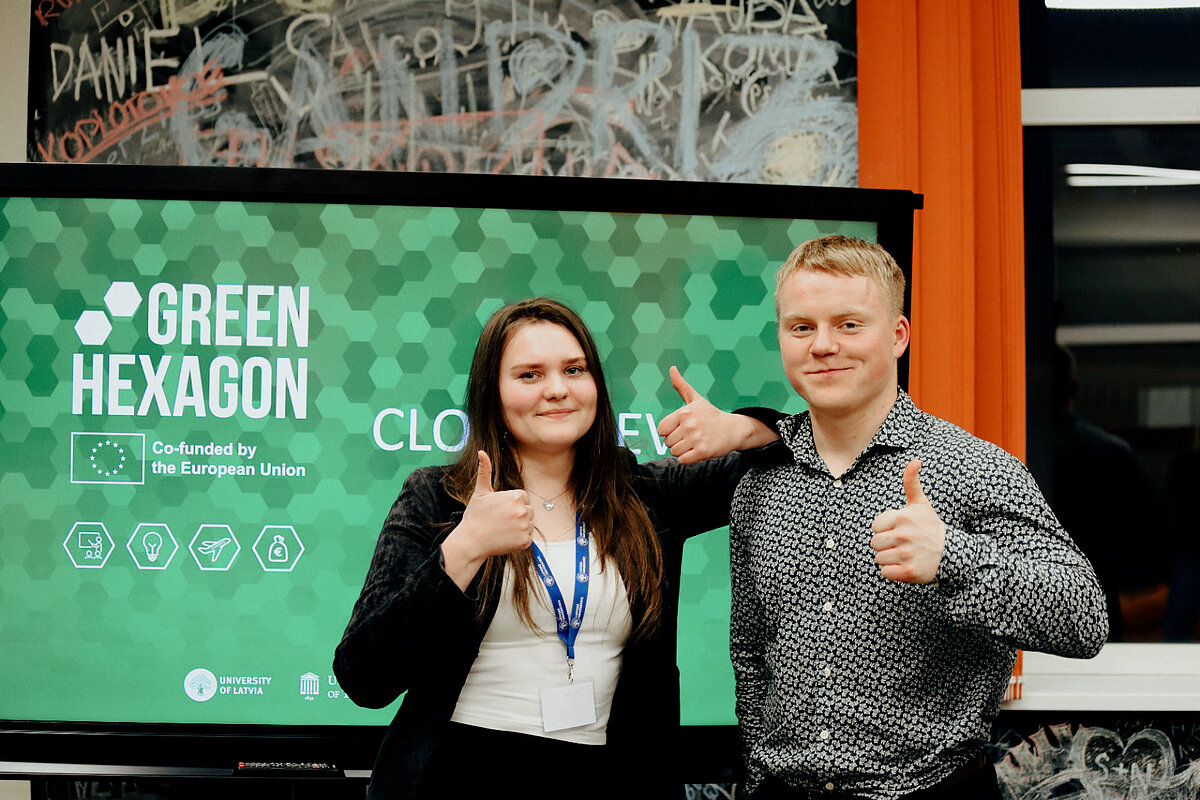
"The success of the "Green HExagon" project clearly demonstrates participants' interest and potential in promoting sustainable solutions. With 173 applications, including a record number in the second cycle, we have created a unique platform that allows participants to work on innovations in the field of green technology. The program's Demo Days, mentorship programs, and practical workshops not only strengthened participants' skills but also fostered entrepreneurial development. We are seeing tangible results—projects like "Gutopia", "Predictable Beekeeping" and "MossHub" are clear proof of the importance of cross-border collaboration and participants' desire to create positive change in Europe," emphasized project manager Liene Bērziņa.
The program received a total of 173 applications – 67 in the first cycle and a record amount of 106 applications in the second cycle. All of the participants worked on green solutions to focus on six distinct aspects of growth - development, skills, collaboration, business, innovation and the environment and climate, ultimately pitching ideas at each cycle’s Demo day.
Throughout the program, participants engaged in intensive mentorship, practical workshops and collaborative sessions designed to cultivate skills essential for launching startups. Notable events of the Green HExagon Program included the workshops and a valuable three-day bootcamp - first cycle in Vienna, Austria and second cycle in Riga, Latvia.
Demo day of the first cycle, which took place on June 13th 2023, saw 15 international projects competing for the prize. The aspiring entrepreneurs presented their projects and progress to a distinguished international jury. Following an intense competition, two projects, “Gutopia” (sustainable plant-based bio-kefir) and “Predictable Beekeeping” (technology-based support for beekeepers to combat bee population decline), impressed the jury most. Both projects were awarded prizes of 3000 and 2000 EUR respectively to further develop their start-up ventures.
Demo Day of the second cycle in June 2024 celebrated standout projects, with the 5000 EUR prize awarded to MossHub, a startup advancing moss-based eco-technologies. Other innovative solutions in circular economy and renewable energy were also showcased, highlighting the entrepreneurial talent and commitment to sustainability nurtured through the "Green HExagon".
The "Green HExagon" Program has demonstrated the power of collaborative, cross-border efforts in driving sustainable entrepreneurship, positioning participants with the skills and network to bring innovations to life across Europe. The success of this "Green HExagon" Program underscores the potential for collaborative, cross-border incubation efforts in addressing environmental challenges.
Also in the project, the "train-the-trainer" program was designed to equip educators and professionals with knowledge in green innitiatives. This program ensures that the latest sustainable practices and technical skills are effectively passed on. Alongside this initiative, the project emphasizes local and regional ecosystem networking, providing platforms for stakeholders to exchange insights, build strategic alliances, and create resilient support networks that strengthen regional cooperation.
Project web page: https://greenhexagon.eu/
The project activities were organised with the support of the European Union Erasmus+ project “Entrepreneurial teaching partnerships for fostering innovation and green startup development in higher education”, project No. 2022-1-LV01-KA220-HED-000090176, UL registration No. ZD2022/21385.
This project was funded by the European Union. The views and opinions expressed reflect the personal views of the author(s) and do not necessarily reflect those of the European Union or the European Education and Culture Executive Agency (EACEA). Neither the European Union nor the EACEA accepts any responsibility for the views expressed.

 LU konference
LU konference